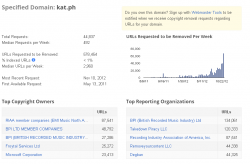Weekly News Roundup (11 November 2012)
Another very quiet week, no doubt due to the focus on the election and the recriminations afterwards. I didn’t do too badly with my predictions though, 48 out of 50. Technically 49 out of 50, since I changed my mind just before the election and (literally) put my money on Colorado staying blue – so I only managed to get Florida wrong (mainly because I overestimated the Cuban vote for Republicans). I’m no Nate Silver, but considering I was mainly going with gut and educated guessing, I certainly did a lot better than most pundits out there.
Towards the end of the week, the October NPD results came in for video game sales in the US. Once again, not enough data to actually write a full analysis, so I’ll briefly cover it in this WNR. I’m hoping that the Wii U is successfully launched and Nintendo find it reasonable again to provide sales data, which assuming Microsoft continues to do the same, means we might have enough data for a full analysis again. I miss writing the NPD updates 🙁
Onto the news …

Having started demoting websites that receive “too many” DMCA notices, you’d think that Google has finally gotten into rights holders’ good books. But as expected, they’re still not happy.
Their protest this time does seem to have some merit though, as a quick browse of some Google search results still show the “majors” (The Pirate Bay, isoHunt, KickassTorrents) still ranking relatively well, at least for certain terms, despite Google having promised that the major piracy sites (the ones receiving the most DMCA notices) would be demoted. Rights holders naturally sounded the alarm, and the first to their rescue has been the UK government, which has launched a review into Google’s latest anti-piracy attempt.

KickassTorrents may have received more than half a million DMCA takedown requests, but it only represents less than 1% of their total indexed pages, which may or may not be enough to affect search results
Almost all webmasters will be familiar with the frustration of trying to work out how Google actually ranks search results, and how strange some of the results are, especially when it comes to websites that are clearly breaking Google’s rules and yet still rank highly. Google’s algorithm is so complicated, I doubt any single person working for the Mountain View company actually knows just how it all works. In the article I’ve linked above, I’ve tried to offer a brief overview of how a ranking for a webpage is derived, based on “good” and “bad” quality signals. I would guess that “DMCA notices” would fall into the “bad” quality signal, but it’s only one of possibly thousands of weighted signals, and just because a website has over 1 million DMCA notices, it doesn’t automatically mean that pages on the site will never rank. One of the most important “good quality” signals is user satisfaction, and people searching for pirated movies will be very satisfied by the “majors”, and these websites would also have a lot of relevant back-links, which is also another very important good quality signal. At the moment, it does look like Google may very well need to adjust just how important the DMCA signal is, to avoid torrent sites from still dominating certain search results. In fact, just doing a quick search today seems to reveal a totally new set of results for the same keywords, with the majors nowhere in the top 10 – maybe Google has responded already!
But even if Google does the impossible and removes every single piracy related torrent or streaming site from its index (note that is has never promised to remove sites, only demote them), I doubt rights holders would be fully satisfied. Because deep down they know that, as much as they want to make Google a scapegoat in all of this, Google and other search engines have never been a big contributor to the web piracy problem. Most traffic (probably upwards of 80-90%) to the majors are not search related traffic at all, but from people who already know of the site (called direct referrals).
Rights holders may be hoping that Google can do more to combat torrent sites, but for direct download sites like RapidShare, these site’s own policy of “self-harm” appears to be enough for now. This “self-harm” policy, implemented by many file hosting websites appears to be exactly what the rights holders had hoped would happen when it lobbied the US government to take action against Megaupload. RapidShare this week took the most drastic action yet, by implementing a daily download limit for shared files. For uploaders using free RS accounts, their uploads now have a daily download limit of 1GB, but even those on paid accounts cannot share more than 30GB of files in any given day. Private file sharing remains unlimited.
These changes comes after last week’s removal of the download speed cap, which has been in place since Megaupload’s demise as a way for RS to drive away the piracy related traffic that was looking for a new home. What this change effectively means is that RapidShare has now moved towards (or back to?) being more of a personal file sharing tool, rather than a public one, regardless of whether the content in question is pirated or not. If you need to share a largish PDF file, one that does not contain confidential information with a few people, then RapidShare still works great. But if you’re a software developer and you were using RapidShare to distribute your files, then you need to think again, even if you use a paid account. 1GB may sound like a lot, but for a typical 5MB download (which is actually the average size of downloads on Digital Digest), that’s only 200 downloads per day. If you’re an indie filmmaker distributing your own film … then forget about it!
Of course, RapidShare will argue that their service was never meant to replace proper file/download hosting, which can be quite expensive as the GBs really do add up. But the fact is that many indie content producers have relied on them in the past, and they will no longer be able to do so.
Disregarding the collateral damage, while the anti-piracy effect of this move may be exactly what rights holders wants, but this will only drive indie content developers towards BitTorrent, something that’s already happening. And the “mainstreaming” of BitTorrent is probably not what rights holders want at all.
——
An interesting/disturbing patent application emerged this week, one made by Microsoft, in which the company plans to use Kinect to enforce a new sinister form of DRM. The DRM would enforce a new kind of rights management under which users pay not just for a time limited usage of video content (ie. a rental), but would also have to pay for each additional user that watches the video. The patent suggest a way for Kinect to detect how many people are watching, and limit playback or charge the users more when a certain number is reached.
Now, patent applications are a dime a dozen, and most are for ideas that will never become reality, so it’s not really worth getting all worked up about this at all. But you just know that some suit somewhere in Hollywood actually thinks this is a great idea. As consumers, we have to be vigilant and we have to let rights holders know what is and isn’t acceptable – pay-per-viewer is definitely not an acceptable trend.
If anything, the trends has moved away from transaction based rental and purchasing, and towards the all-you-can-eat variety. Adding “viewer based transactions” will be a serious step backwards.
![]()
As mentioned earlier, NPD has released October’s US video game sales report, and the Xbox 360 yet again was the most dominant console, having managed to grab 56% of the home based console market share.
The Xbox 360 sales figures still represent a 31% decline compared to the same month last year. With the holiday period coming up, Microsoft will hope sales will start to pick up, because declines like this point to the need of a new console. I’m still hoping a good set of Wii U results, when it’s released in mid November, will prompt the company to start releasing hardware sales results again (I think they may do it if sales exceed that of the Xbox 360, but then perhaps if that happens, Microsoft will become less forthcoming with their own results).
But don’t discount the Xbox 360 just yet – the launch of Halo 4 might be at just the right time going into the holiday period, and none of the previews so far indicate that the Wii U is, graphically at least, that much more powerful than the 360 and PS3. So for the Wii U, it all depends on whether the tablet controller can be used to full effect, and whether that’s enough of a differentiator to make it stand out. Well at the very least, Nintendo’s flagship console will no longer be considered a technological throwback (not until the PS4 and Xbox 720 comes out anyway).
That’s all for this week. Have a good one, and see you in seven.


